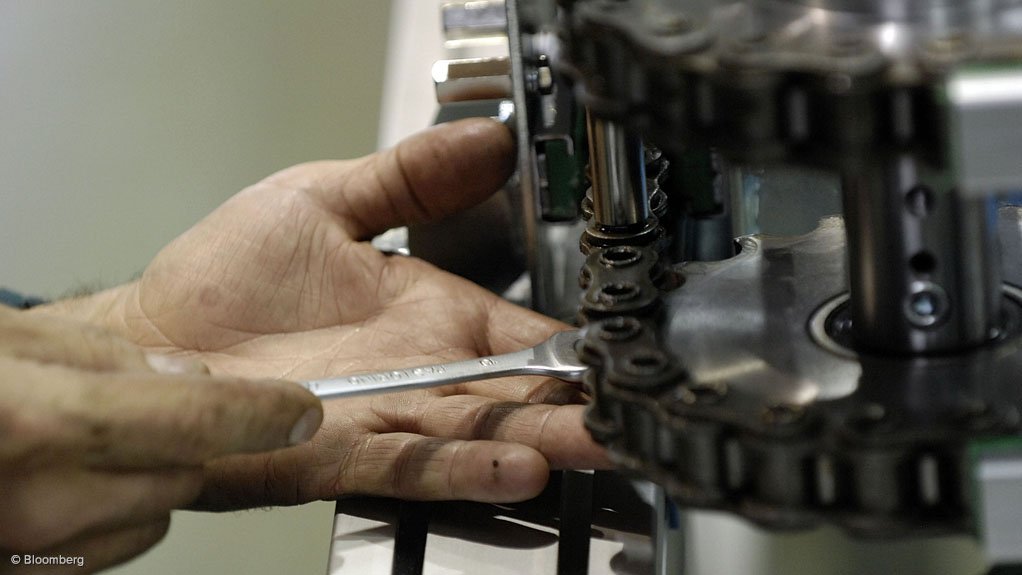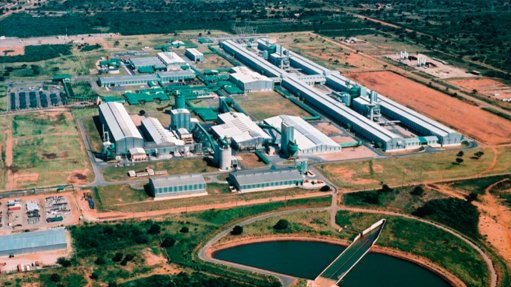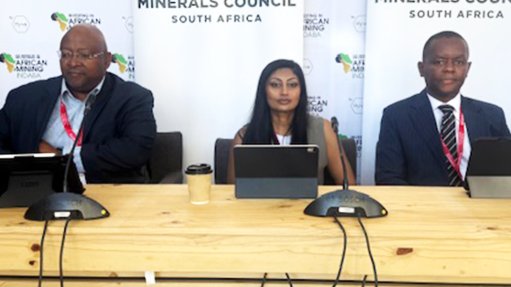Hard evidence of composition of SMME sector lacking despite being largest employer
Despite the widely recognised notion that formal and informal small, medium-sized and microenterprises (SMMEs) employ most of the country’s labour force, there is a lack of hard evidence on the composition of small businesses in South Africa, Human Sciences Research Council senior research specialist Justin Visagie has said.
During a presentation at the yearly Trade & Industry Policy Strategies (TIPS) Forum on July 30, he attributed the lack of that data partly to a weakness in South Africa’s statistical ecosystem and limited availability of any firm databases, despite there being numerous household databases.
Visagie highlighted another obstacle to accurate data gathering as being the South African Revenue Service’s classification of SMMEs based on gross income turnover and total assets, an approach that excludes all tax-exempt firms, such as government agencies, some State-owned enterprises, public benefit organisations and nonprofit organisations. An alternative to define SMMEs is by the number of people they employ.
He cited a study by consultancy McKinsey this year, which found that SMMEs account for 77% of all jobs in emerging economies and 66% of all jobs in advanced economies.
The FinScope Consumer Survey for 2023 found that 87% of South Africa’s total labour force is employed by SMMEs; however, Visagie deems Statistics South Africa’s surveys of 2023 more accurate in finding that SMMEs generated half of the waged work in the formal private sector.
Using data about SMMEs from tax submissions, Visagie reported that in 2019/20 the total number of registered establishments was 469 000, which employed 10.8-million people. Of this, SMMEs make up 415 000, or 88% of establishments, but reportedly only account for 4.3-million, or 40%, of employment.
In the same year, 66% of all new jobs were created by SMMEs, with very large firms only contributing 14.7% of all new jobs.
Visagie found the majority of SMMEs, or 18%, were involved in the retail sector, followed by manufacturing with 16%.
He recommended that more information be made available about SMMEs in the country, particularly since the National Development Plan envisioned that 90% of new jobs in South Africa should be created by SMMEs by 2030 – which Visagie said was unrealistic.
He maintained that the direct contribution from SMMEs to formal employment was modest and that more large firms needed to invest in smaller firms to reach this goal.
He added that SMME job contribution was curtailed by definition and that expectations of SMMEs in economic development should be clarified better in public policy. There was also a large variation in the share of SMMEs by municipality, which implied that some places were better incubators than others.
“We should avoid thinking of SMMEs in a simplistic way and as a panacea for the country. Survivalist informal enterprises are important for poverty reduction and livelihoods but will not drive significant GDP growth or decent wages.
“Additionally, conventional small business services such as retail, personal care and entertainment create jobs but have little tradability and wider dynamism,” Visagie explained.
He deemed administrative data as an untapped resource for more SMME activity and investment. “We need fine-grained data that captures the heterogeneity of SMMEs.”
Visagie added that there was a wide research gap in understanding the different forms of entrepreneurship and SMMEs, as well as the understanding of SMMEs’ lifecycle over time – including rates of survival.
By looking at SMMEs from a sectoral and spatial lens, more barriers and enablers, likewise, within industries and local ecosystems can be identified.
Systemic Change
TIPS senior economist Neva Makgetla pointed out that self-employment comprised a small share of employment in the country compared with other upper-middle-income countries. “If we are going to have the same level of employment as in peer countries, we need at least two-million more enterprises, which will require more family-owned businesses, increased wage employment through intervention in labour-intensive industries, as well as social grants and collective ownership.”
She added that apartheid was the root cause of destruction of small businesses, with many inequalities remaining today – the chances to have adequate transport, education and assets remained poor in most communities.
“When you destroy ecosystems that support small business, you need a new, more supportive ecosystem to enable them to operate. It is not simply about whether people have finance or are entrepreneurial. How can we go about rebuilding ecosystems for small businesses?” Makgetla questioned.
Historically, South Africa’s industrial policy has promoted capital-intensive industries and raised productivity and exports; however, this has not resulted in employment creation on a significant scale. “Government is not set up in a way to support decentralised businesses, which are of high value to society.”
TIPS data found that the number of small formal businesses in South Africa reached 710 000 in 2022, having grown from 680 000 in 2019 and 590 000 in 2010.
The number of estimated informal businesses as of 2022 was 1.75-million.
This rate of growth, however, is not enough to overcome the deficit in small enterprises left by apartheid. In other upper-middle-income countries, small businesses owners make up more than 20% of the working-age population, while this figure is 6% in South Africa. TIPS estimated that small formal businesses directly generate a third of value added in South Africa, while informal enterprises add about 5%.
TIPS said small formal businesses account for about 30% of total employment, 32% of all waged employment, including informal and domestic work, and half of waged work in the formal private sector.
Makgetla explained that South African policies had tended to respond to industries that were in crisis rather than those with massive potential to grow. To vastly scale up support for self-employment, it would require big systemic changes, not just protecting businesses from foreign or domestic competition.
TIPS executive director Saul Levin said small business development had been a priority in the country since 1994 as a way to support economic growth; however, there was a need for a more supportive ecosystem and not the “business as usual” approach that had prevailed.
Greater SMME growth could contribute to inclusive industrial development and a more equitable society, he motivated.
University of Johannesburg’s South African Research Chair in Industrial Development Professor Fiona Tregenna agreed, stating that inclusivity in respect of spatial patterns, size of businesses, gender and race were crucial to opening up the structure of the economy and ensuring that SMMEs had a pathway to innovate, grow and in some cases export.
In her keynote address at the forum, Department of Trade, Industry and Competition acting director-general Malebo Mabitje-Thompson said the newly formed government of national unity was prioritising targeted industrial policy to tackle the issues of food insecurity, high cost of living, unemployment, poverty and access to basic services.
“Industrial policy requires a long-term view and lays a basis for other administrations to take the industrial landscape forward in South Africa.”
Ideally, she said, industrial policy should be designed to help domestic sectors reach goals that markets alone are unlikely to achieve; therefore, the policy acted as an impactful intervention by the State to catalyse markets for better growth.
Mabitje-Thompson distinguished between horizontal industrial policy that looked at improving the business environment for all sectors of the economy and vertical industrial policy that was more sector-specific with demand- or supply-side considerations.
She cited sector master plans as an example of an industrial policy that allowed for government to co-create strategies with sector champions. The question remained, however, how did the decisions within sector plans affect SMMEs, since they had not unlocked massive participation of small businesses and make them more competitive.
Mabitje-Thompson echoed Visagie’s sentiment, saying that SMMEs were not a homogenous group of businesses and were different across sectors as well. She highlighted a focus for the current administration as being more enablement of rural and peri-urban businesses to participate in the economy.
In this regard, she emphasised the importance of market aggregation to help businesses in rural areas to be more productive and access more information.
“It is important that we find a way for industrial policy to not be alien to rural systems,” she explained, highlighting the example of stokvels that were prevalent forms of financing in rural communities, yet were not part of the formal financing system.
“We must look at indigenous systems of finance and allow them to come into play as a part of our industrial policy. Regulations must respond to the industrial policy ambitions of rural communities, some of which relate to how they finance themselves.”
Mabitje-Thompson concluded that policies often did not have the expansionary net effect that allowed all people to benefit, therefore more mechanisms needed to be developed to bring people to the table and allow businesses to be a part of the country’s growth trajectory.
Article Enquiry
Email Article
Save Article
Feedback
To advertise email advertising@creamermedia.co.za or click here
Announcements
What's On
Subscribe to improve your user experience...
Option 1 (equivalent of R125 a month):
Receive a weekly copy of Creamer Media's Engineering News & Mining Weekly magazine
(print copy for those in South Africa and e-magazine for those outside of South Africa)
Receive daily email newsletters
Access to full search results
Access archive of magazine back copies
Access to Projects in Progress
Access to ONE Research Report of your choice in PDF format
Option 2 (equivalent of R375 a month):
All benefits from Option 1
PLUS
Access to Creamer Media's Research Channel Africa for ALL Research Reports, in PDF format, on various industrial and mining sectors
including Electricity; Water; Energy Transition; Hydrogen; Roads, Rail and Ports; Coal; Gold; Platinum; Battery Metals; etc.
Already a subscriber?
Forgotten your password?
Receive weekly copy of Creamer Media's Engineering News & Mining Weekly magazine (print copy for those in South Africa and e-magazine for those outside of South Africa)
➕
Recieve daily email newsletters
➕
Access to full search results
➕
Access archive of magazine back copies
➕
Access to Projects in Progress
➕
Access to ONE Research Report of your choice in PDF format
RESEARCH CHANNEL AFRICA
R4500 (equivalent of R375 a month)
SUBSCRIBEAll benefits from Option 1
➕
Access to Creamer Media's Research Channel Africa for ALL Research Reports on various industrial and mining sectors, in PDF format, including on:
Electricity
➕
Water
➕
Energy Transition
➕
Hydrogen
➕
Roads, Rail and Ports
➕
Coal
➕
Gold
➕
Platinum
➕
Battery Metals
➕
etc.
Receive all benefits from Option 1 or Option 2 delivered to numerous people at your company
➕
Multiple User names and Passwords for simultaneous log-ins
➕
Intranet integration access to all in your organisation





















